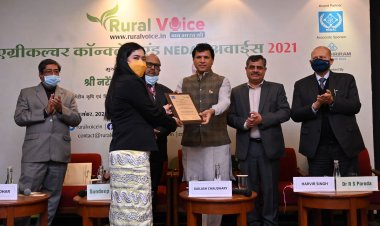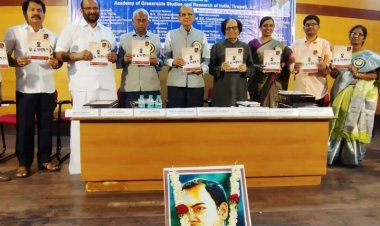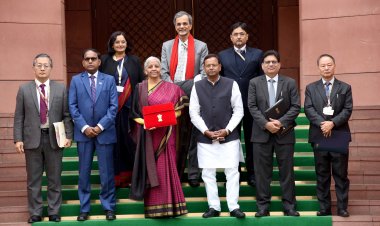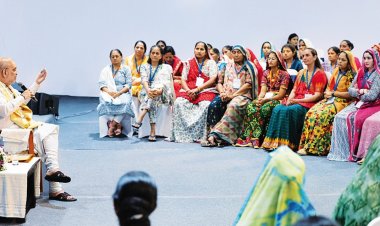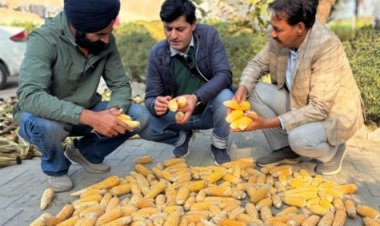How impactful will farmers' issues resonate in the Maharashtra elections?
The political discourse around soybean and cotton highlights the growing awareness of farmers in the Marathwada and Vidarbha regions about their challenges. This time, they are raising their concerns as assertively as the sugarcane and onion farmers of western Maharashtra have traditionally voiced their demands.
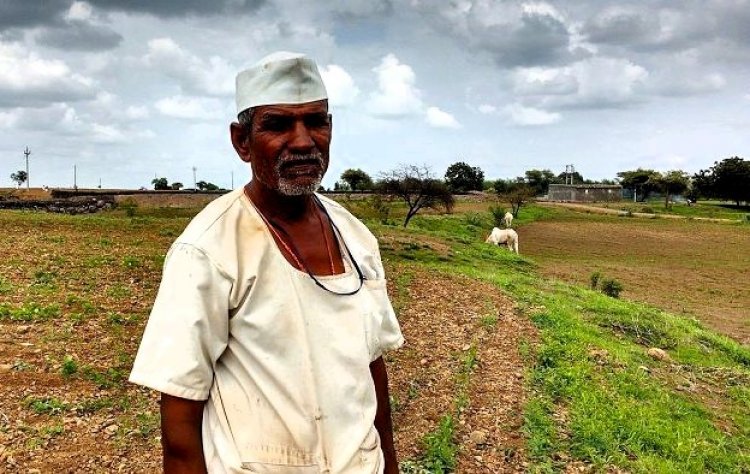
After the Lok Sabha elections, the politically significant Maharashtra Assembly elections are set to take place on November 20. In recent days, farmers' issues have echoed prominently as key electoral concerns in the state. At the forefront of these issues are soybean, cotton, onion, and sugarcane farmers. The political discourse around soybean and cotton highlights the growing awareness of farmers in the Marathwada and Vidarbha regions about their problems. This time, they are raising their concerns as assertively as the sugarcane and onion farmers of western Maharashtra have traditionally voiced their demands.
In fact, farmers across the country have become increasingly aware of the Minimum Support Price (MSP) for their crops and the need for better prices for those not covered under MSP. This awareness has made the decline in soybean and cotton prices a major issue in the Maharashtra elections. To some extent, the government has tried to ease the discontent of onion farmers by lifting restrictions on onion exports. However, the challenges faced by soybean, cotton, sugarcane, and dairy farmers in the state are emerging as significant electoral issues.
In Maharashtra, soybean is cultivated on approximately 50 lakh hectares, cotton on 40 lakh hectares, sugarcane on 10 lakh hectares, and onions on around 7 lakh hectares. Despite the larger cultivation area of soybean and cotton compared to onions and sugarcane, the issues of onion and sugarcane farmers often dominate headlines and political discussions. However, this time, the scenario is different. The concerns of soybean and cotton farmers have taken center stage and are resonating strongly in the Maharashtra elections.
Onion production is concentrated primarily in Nashik, Pune, Ahmednagar, and Solapur. Cotton, on the other hand, is predominantly grown in Jalgaon, Yavatmal, Aurangabad, Jalna, Beed, Amravati, Wardha, Nanded, Dhule, and Parbhani. Sugarcane cultivation is more prevalent in western Maharashtra and Marathwada, while its production is relatively limited in Vidarbha.
The government has set the Minimum Support Price (MSP) for soybean at Rs 4,892 per quintal for the ongoing Kharif Marketing Season (2024-25). However, soybean farmers in Maharashtra are being forced to sell their produce at prices below Rs 4,000 per quintal. Under the Price Support Scheme (PSS), the central government has set a target to procure 13.08 lakh tonnes of soybean in Maharashtra. Yet, as of two days ago, the procurement figures had not even reached 5,000 tonnes.
Amid growing farmer discontent, Prime Minister Narendra Modi announced at a recent election rally that soybean farmers would be provided Rs 6,000. Meanwhile, the Congress countered with a promise to ensure Rs 7,000 per quintal for soybean if it comes to power.
Traders and farmers in Maharashtra believe that one of the main reasons for the low procurement of soybean is the high moisture content in the crop, exceeding the prescribed standard. Farmers have been bringing their produce to procurement centers, but due to excess moisture, it has not been accepted under the government scheme. Consequently, they were compelled to sell their crop to private traders at lower prices.
As the issue gained political traction, the Union Ministry of Agriculture and Farmers' Welfare issued a directive on November 15 to increase the permissible moisture level for government procurement to 15%. However, the timing of this decision is noteworthy. The soybean harvest in the state has already been completed, and a significant number of farmers have sold their crop at lower prices. This delay could result in political repercussions for the BJP, as many farmers remain dissatisfied.
The situation for cotton farmers is also far from ideal, with prices falling below the MSP. For the current season, the MSP for medium-staple cotton is set at Rs 7,121 per quintal. However, on November 15, this variety was being sold for ₹6,900 per quintal in Yavatmal. Comparatively, the price was Rs 7,200 per quintal a year ago and Rs 9,000 per quintal two years ago. These declining prices highlight the challenges faced by farmers, fueling their dissatisfaction and adding to their growing resentment.
As election campaigning enters its final phase and voting is set for November 20, it won't take long to see how much impact farmers' issues will have on the election results. However, the fact that discussions on farmers' concerns are dominating the peak of the election campaign clearly indicates that Maharashtra's politics is no longer confined to the issues of sugarcane and onion farmers. The opposition alliance, Maha Vikas Aghadi, is fully leveraging the plight of farmers to gain political advantage. Meanwhile, the BJP led Mahayuti coalition, is focusing its efforts on minimising farmer discontent in an attempt to mitigate its potential impact on the elections.



 Join the RuralVoice whatsapp group
Join the RuralVoice whatsapp group
































